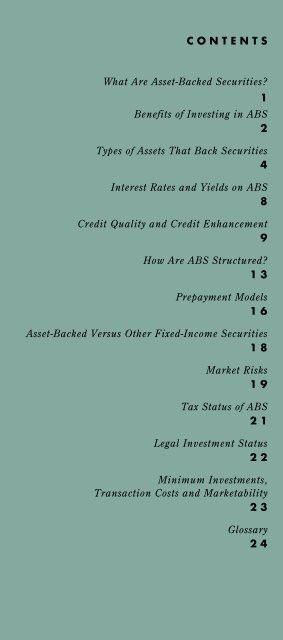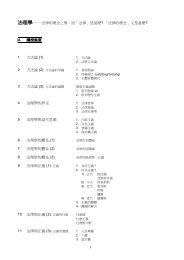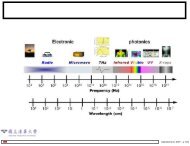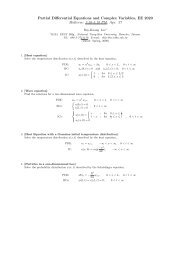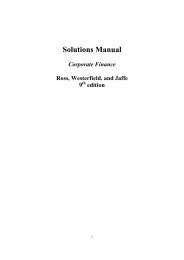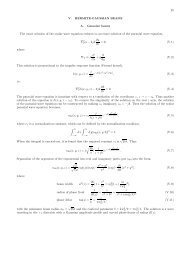assetbacked Pages
assetbacked Pages
assetbacked Pages
You also want an ePaper? Increase the reach of your titles
YUMPU automatically turns print PDFs into web optimized ePapers that Google loves.
CONTENTS<br />
What Are Asset-Backed Securities?<br />
1<br />
Benefits of Investing in ABS<br />
2<br />
Types of Assets That Back Securities<br />
4<br />
Interest Rates and Yields on ABS<br />
8<br />
Credit Quality and Credit Enhancement<br />
9<br />
How Are ABS Structured?<br />
13<br />
Prepayment Models<br />
16<br />
Asset-Backed Versus Other Fixed-Income Securities<br />
18<br />
Market Risks<br />
19<br />
Tax Status of ABS<br />
21<br />
Legal Investment Status<br />
22<br />
Minimum Investments,<br />
Transaction Costs and Marketability<br />
23<br />
Glossary<br />
24<br />
WHAT ARE ASSET-BACKED<br />
SECURITIES?<br />
Asset-backed securities, called ABS, are bonds or notes<br />
backed by financial assets. Typically these assets consist<br />
of receivables other than mortgage loans, 1 such as<br />
credit card receivables, auto loans, manufactured-housing<br />
contracts and home-equity loans. ABS differ from<br />
most other kinds of bonds in that their creditworthiness<br />
(which is at the triple-A level for more than 90% of outstanding<br />
issues) derives from sources other than the<br />
paying ability of the originator of the underlying assets.<br />
Financial institutions that originate loans—including<br />
banks, credit card providers, auto finance companies<br />
and consumer finance companies—turn their loans into<br />
marketable securities through a process known as<br />
securitization. The loan originators are commonly<br />
referred to as the issuers of ABS, but in fact they are<br />
the sponsors, not the direct issuers, of these securities.<br />
These financial institutions sell pools of loans to a<br />
special-purpose vehicle (SPV), whose sole function is to<br />
buy such assets in order to securitize them. 2 The SPV,<br />
which is usually a corporation, then sells them to a<br />
trust. The trust repackages the loans as interest-bearing<br />
securities and actually issues them. The “true sale”<br />
of the loans by the sponsor to the SPV provides “bankruptcy<br />
remoteness,” insulating the trust from the sponsor.<br />
The securities, which are sold to investors by the<br />
investment banks that underwrite them, are “credit-<br />
1 Securities backed by first mortgages, although the most common<br />
ABS, are considered a separate investment category and are<br />
therefore not included in this guide. They are discussed in detail in<br />
The Bond Market Association’s Investor’s Guide to Mortgage<br />
Securities.<br />
2 Certain types of financial institutions, such as banks, may sell their<br />
loans directly to a trust that issues ABS, since the intermediate sale<br />
to an SPV is not needed to achieve bankruptcy remoteness.<br />
(See “Special-Purpose Vehicle and the Rating,” on page 10.)<br />
1


